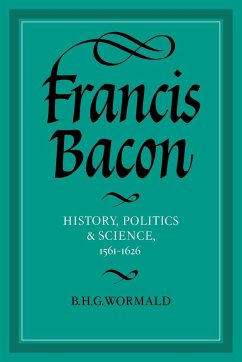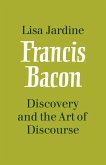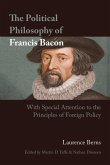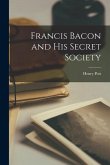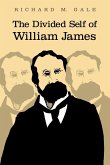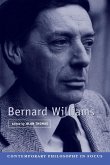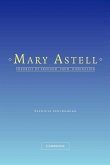In this book Brian Wormald provides a fundamental reappraisal of Francis Bacon.
In the centuries since his death, Francis Bacon has been perceived as a promoter and prophet of 'natural science'. Certainly Bacon expected to fill the vacuum which he saw existing in the study of nature; but he also saw himself as a clarifier and promoter of what he called 'policy', that is, the study and improvement of the structure and function of civil states including the then new British state. In this major study, Brian Wormald's first since his work on Clarendon, Bacon is shown resolving this conflict by attending assiduously to both fields, arguing that work on one would help progress in the other. In his teaching, in his practice and in terms of what was actually achieved, the junction between the two enterprises was affected by Bacon's work in history - civil and natural. In this fundamental reappraisal of one of the most complex and innovative figures of the age, Brian Wormald reveals how Bacon's conception and practice of history provided an answer to his strivings in both policy and natural philosophy.
Review quote:
"Wormald provides important insights into Bacon's natural philosophy in the process of examining the similarities between his natural and civil philosophy programs."
American Historical Review
"...a fresh and methodical reading of the Baconian corpus that no future scholar will be able to ignore."
Canadian Journal of history
"To my mind, this rich, complex study repays the effort that must be expended on it....Wormald shows what a vast, and at the same time flawed, intellectual giant Bacon was."
A. Rupert Hall, Nature
"Wormald resists any fast flights to the easy, familiar generalizations about Bacon; rather throughout his study he remains centered in and on the texts of Bacon...To gain a formidable understanding of a past thinker, text and context must be brought together...to accomplish it with integrity and also advance our understanding is a test of any genujne, scholarly contribution...In opening a number of new vistas to Bacon, Wormald suceeds in this and to our benefit."
Dominic J. Balestra, Sixteenth Century Journal
"Wormald's reading of Bacon's philosophy, and especially of the importance of the historical component within it, is often rewarding."
F.J. Levy, Albion
"...this study represents a fresh look at Francis Bacon. Its argument possesses strength and persuasiveness based on a close examination of primary sources. It is a significant contribution."
George Ouwendijk, Renaissance Quarterly
Table of contents:
Acknowledgments; 1. Introduction; 2. Two programmes: know thyself and know the universe of nature; 3. Knowledges are as pyramids, whereof history is the basis - history civil - this latter extended to describe and to include the Common Law of England; 4. Logic - idols of the mind - rhetoric; 5. Policy: a great part of philosophy - Bacon's engagements of policy; 6. Morality and policy I; 7. Morality and policy II; 8. Morality and policy III; 9. Morality and policy IV; 10. Civil history of letters - civil history mixed; 11. Civil history of the reign of King Henry the 7th; 12. Aims and claims - but no metaphysics of nature; 13. No metaphysics of nature - civil history supplies Bacon's masculine birth of time; 14. Bacon and his markers I; 15. Bacon and his markers II; Notes; Index.
In the centuries since his death, Francis Bacon has been perceived as a promoter and prophet of 'natural science'. Certainly Bacon expected to fill the vacuum which he saw existing in the study of nature; but he also saw himself as a clarifier and promoter of what he called 'policy', that is, the study and improvement of the structure and function of civil states including the then new British state. In this major study, Brian Wormald's first since his work on Clarendon, Bacon is shown resolving this conflict by attending assiduously to both fields, arguing that work on one would help progress in the other. In his teaching, in his practice and in terms of what was actually achieved, the junction between the two enterprises was affected by Bacon's work in history - civil and natural. In this fundamental reappraisal of one of the most complex and innovative figures of the age, Brian Wormald reveals how Bacon's conception and practice of history provided an answer to his strivings in both policy and natural philosophy.
Review quote:
"Wormald provides important insights into Bacon's natural philosophy in the process of examining the similarities between his natural and civil philosophy programs."
American Historical Review
"...a fresh and methodical reading of the Baconian corpus that no future scholar will be able to ignore."
Canadian Journal of history
"To my mind, this rich, complex study repays the effort that must be expended on it....Wormald shows what a vast, and at the same time flawed, intellectual giant Bacon was."
A. Rupert Hall, Nature
"Wormald resists any fast flights to the easy, familiar generalizations about Bacon; rather throughout his study he remains centered in and on the texts of Bacon...To gain a formidable understanding of a past thinker, text and context must be brought together...to accomplish it with integrity and also advance our understanding is a test of any genujne, scholarly contribution...In opening a number of new vistas to Bacon, Wormald suceeds in this and to our benefit."
Dominic J. Balestra, Sixteenth Century Journal
"Wormald's reading of Bacon's philosophy, and especially of the importance of the historical component within it, is often rewarding."
F.J. Levy, Albion
"...this study represents a fresh look at Francis Bacon. Its argument possesses strength and persuasiveness based on a close examination of primary sources. It is a significant contribution."
George Ouwendijk, Renaissance Quarterly
Table of contents:
Acknowledgments; 1. Introduction; 2. Two programmes: know thyself and know the universe of nature; 3. Knowledges are as pyramids, whereof history is the basis - history civil - this latter extended to describe and to include the Common Law of England; 4. Logic - idols of the mind - rhetoric; 5. Policy: a great part of philosophy - Bacon's engagements of policy; 6. Morality and policy I; 7. Morality and policy II; 8. Morality and policy III; 9. Morality and policy IV; 10. Civil history of letters - civil history mixed; 11. Civil history of the reign of King Henry the 7th; 12. Aims and claims - but no metaphysics of nature; 13. No metaphysics of nature - civil history supplies Bacon's masculine birth of time; 14. Bacon and his markers I; 15. Bacon and his markers II; Notes; Index.

